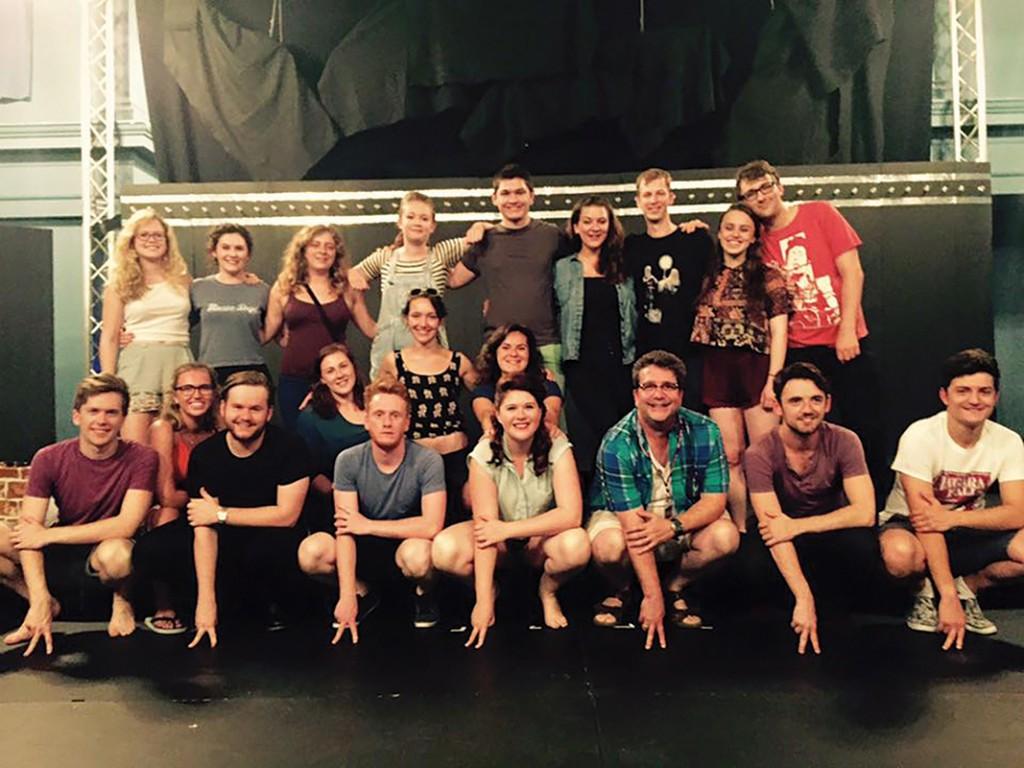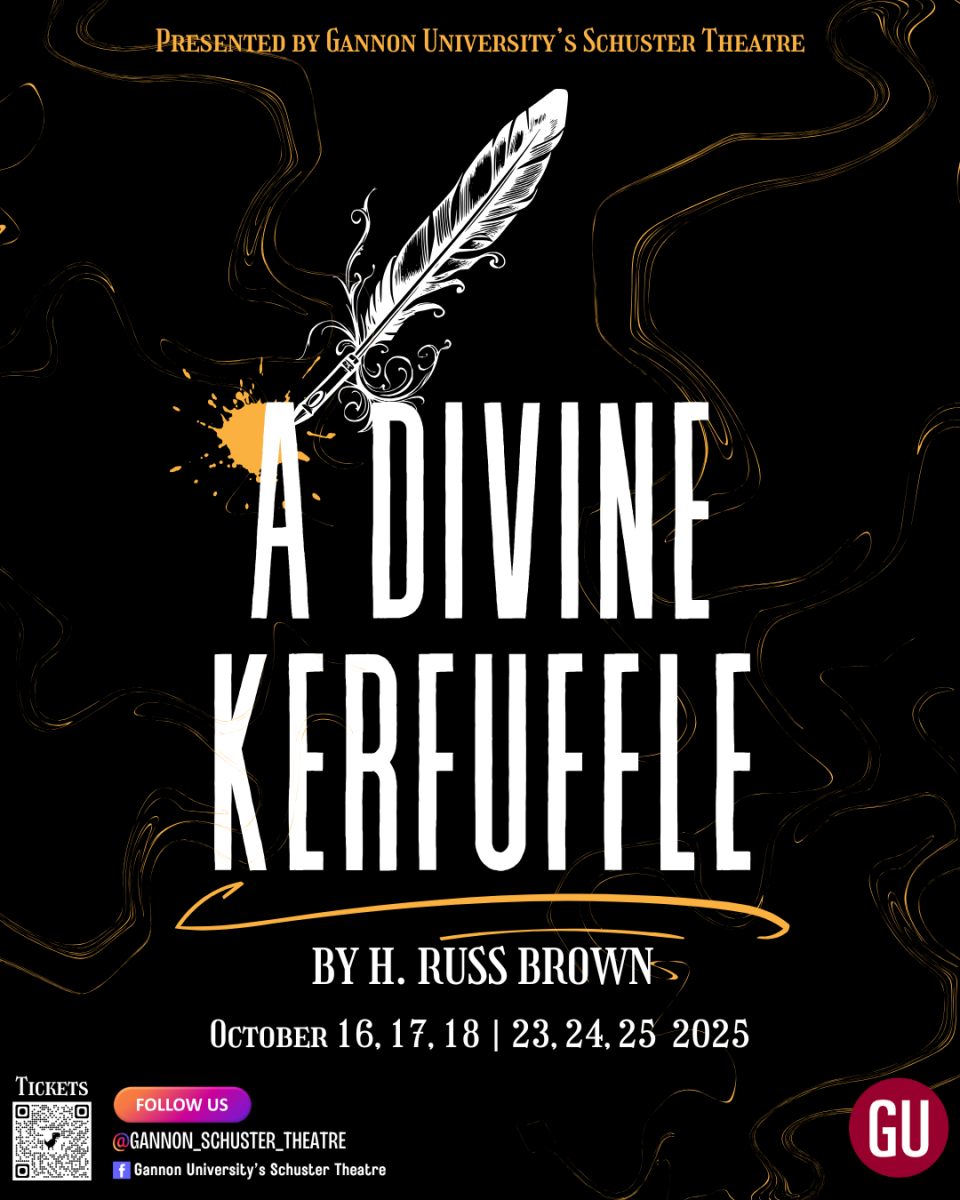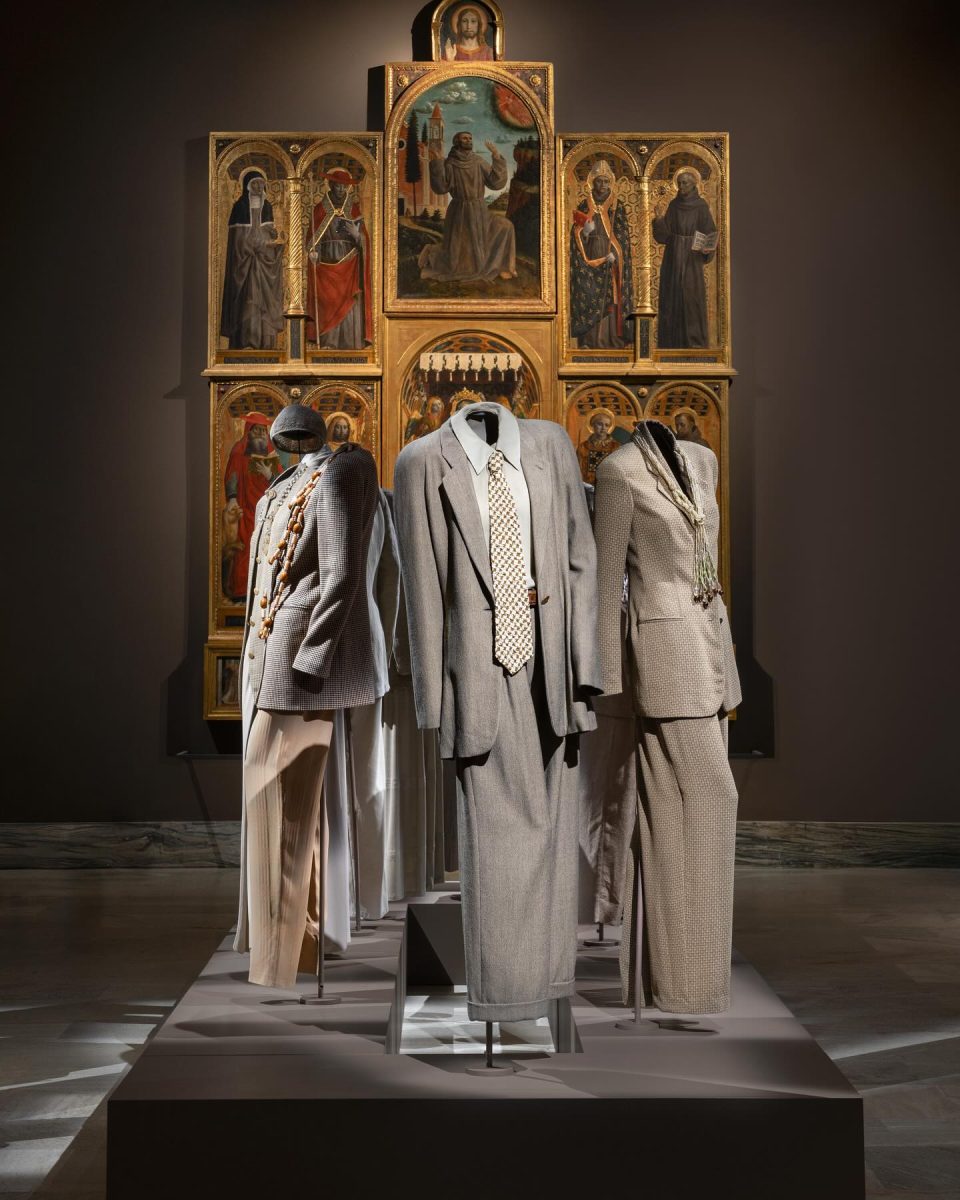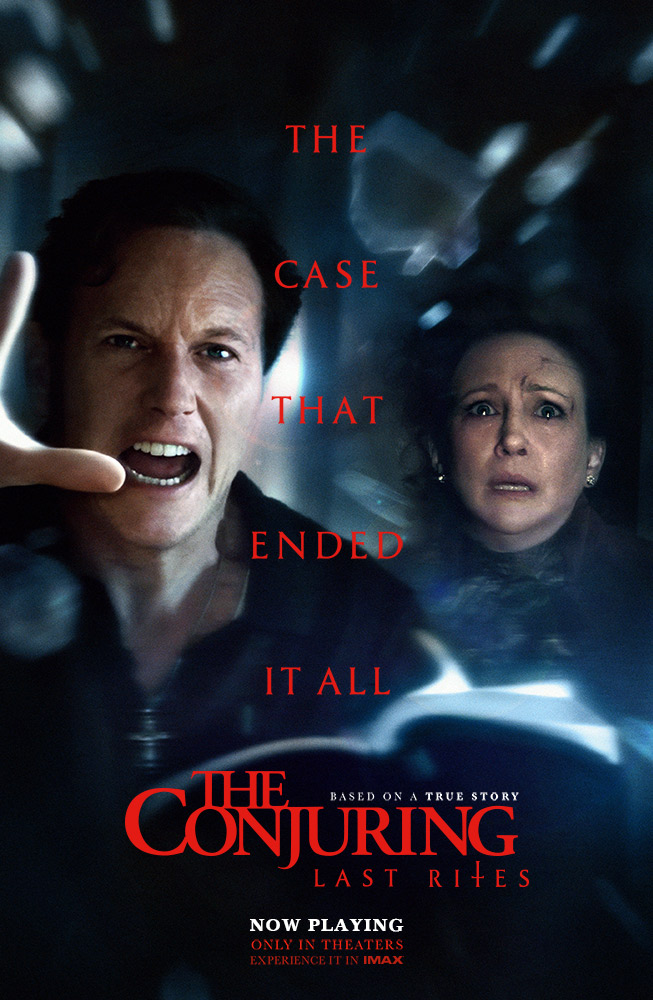By KELSEY GHERING
features editor
Modernizing the work of Shakespeare is not a new idea.
Leonardo DiCaprio played a distressed, Brazilian version of Romeo in a ‘90s rendition of “Romeo and Juliet,” stylized with Shakespeare’s original dialogue. The juxtaposition was unusual, but there’s something funny about the script put in a modern context.
The Cambridge American Stage Tour (CAST) brought this concept to Gannon University Thursday by costuming “The Taming of the Shrew,” with ‘80s pop flair and using a soundtrack that matched.
Prince’s “When Doves Cry,” played as the audience filed in and I knew someone would walk on with big hair or leg warmers. I wasn’t entirely wrong.
While the costumes and set were minimalistic in order to travel easily, you get the essence of the character right away.
Katerina and Bianca, polar opposite sisters, dressed as such. Katerina is easily spotted as the Shrew in fishnets, red Doc Martins and a short black dress with a tomboyish leather jacket thrown over it.
Bianca looked more like a ‘50s housewife in a knee-length skirt and a feminine off-the-shoulder top.
The sisters’ mother was signified with a blazer that had a boa sewn over the shoulders. The nobleman Petruccio wore an embellished jacket over his black character clothes.
These pieces allowed for quick costume changes while giving enough visual difference to let the audience know they were playing a different character. The set was a collection of collapsible canvas boxes that served as walls, tables and buildings throughout the course of the show. Each member onstage moved the set around and there was never a change in the energy level onstage.
The show opens with an arm wrestling match and within five minutes, we know a drunken beggar is watching a play that becomes the subject of the show.
Because the “play” is sort of a practical joke toward the beggar, it requires high energy to maintain the ridiculous characters.
There is a fun scene where the men duel and turn it into a light sabre fight by charades. Many of the bawdy jokes written in Shakespeare’s language move along with gestures and some of the actors took roles as limping or nervous servants where they changed their body language completely in different scenes.
Because the actors are all from Cambridge, they share the dialect Shakespeare wrote his plays for and the speech goes naturally—it was nothing like stumbling over his work aloud in English class.
The plotline is simple enough. Bianca is admired by her countrymen as the ideal wife, but her mother will not give her away until her eldest daughter, Katerina, is married first.
Katerina is callous and outspoken — definitely not Elizabethan-age wife material. No one will marry her for “a mine of gold.”
Each of Bianca’s suitors conspire to find somebody crazy enough to court Katerina and find Petruccio will do it willingly in exchange for her dowry.
A wedding scene complete with Petruccio putting on his madness in thigh-high boots and flashy green shorts follows. He gives a short soliloquy on his plan to “tame” her by giving her abrasive attitude right back.
Once Katerina is married, her sister marries Lucentio and all seems well after a funny conflict between him and his servant.
The play ends on a bet Petruccio makes with his buddies regarding which wife is the most obedient.
The others could not bear to woo Katerina, so they willingly bet against her. Bianca has not grown up one bit and will not come when Lucentio calls her. Grumio, who lost his chance with Bianca and married a widow, got the same response.
Only Katerina obeys her husband and we see a completely different woman. The shrew who was growling at men and more content to read a book in the opening scenes now speaks on how women are “bound to love, serve and obey.”
There are probably literary arguments saying Shakespeare thought she was a genius and only doing the bidding of her husband to avoid his wrath, but as far as the acting is concerned, she changes.
While the energy of CAST moved the play rather quickly, it was not hard to follow considering I had no prior knowledge of the story. I’d say it was worth the admission.
CAST will continue its tour with a performance at the Shakespeare Academy in Stratford, Connecticut.
KELSEY GHERING








